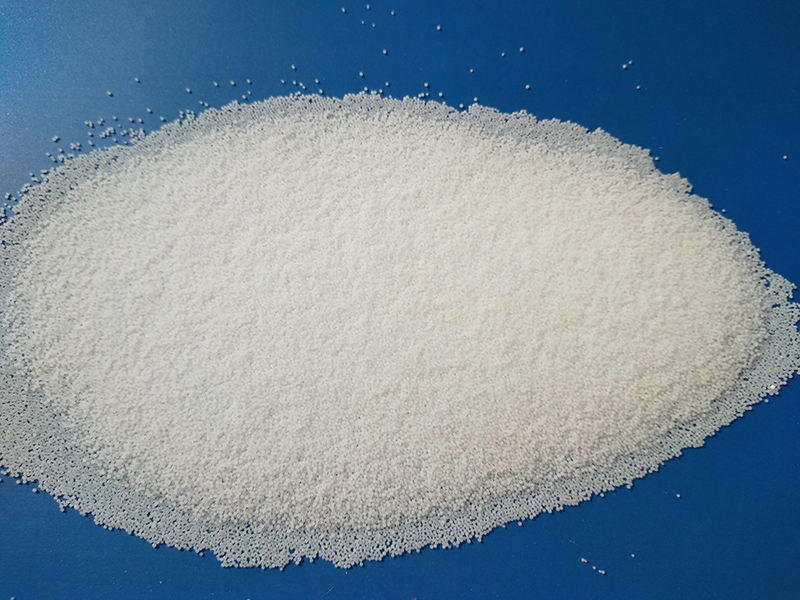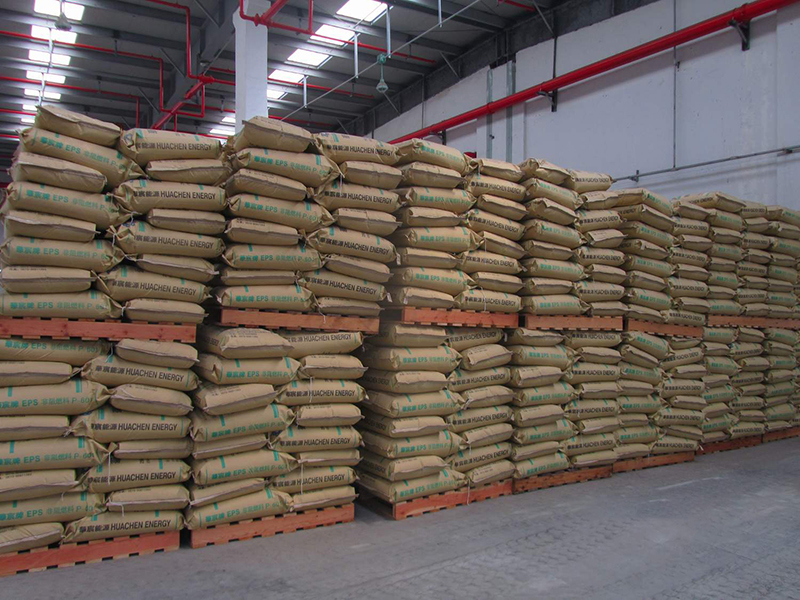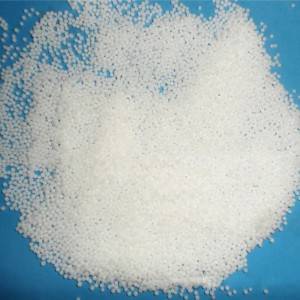Factory-Grade EPS Foam Blocks for Various Applications
Product Main Parameters
| Parameter | Specification |
|---|---|
| Density | 5-200 kg/m3 |
| Thermal Conductivity | 0.030-0.040 W/m·K |
| Compressive Strength | 70-250 kPa |
| Block Dimensions | Customizable |
Common Product Specifications
| Type | Application |
|---|---|
| High Expandable EPS | General Packaging |
| Self-Extinguishing EPS | Construction |
| Food-Grade EPS | Food Packaging |
Product Manufacturing Process
The production of EPS foam blocks begins with small beads of polystyrene. These beads are exposed to steam, causing them to expand significantly. The expanded beads are then placed into molds and re-exposed to steam, fusing them into solid blocks of EPS. This energy-efficient process allows for the production of EPS blocks in various densities tailored to specific applications. According to industry reports, the process is not only efficient but also minimizes waste, making it a cost-effective solution for manufacturing lightweight, durable foam blocks.
Product Application Scenarios
EPS foam blocks find applications across diverse sectors. In the construction industry, they are used for thermal insulation and creating insulated concrete forms, which enhance structural integrity. They are also popular in packaging due to their shock-absorbing properties, protecting delicate items during transportation. Moreover, artists and set designers utilize these blocks for creating lightweight, easily moldable props and installations. Studies have shown that civil engineering projects benefit from using EPS foam blocks for soil stabilization and road construction due to their lightweight and load-bearing capabilities.
Product After-Sales Service
We offer comprehensive after-sales services, including technical support, troubleshooting, and replacement of defective parts. Our dedicated team ensures that customers receive timely assistance and guidance for optimal use of their EPS foam blocks.
Product Transportation
Our EPS foam blocks are carefully packaged to prevent damage during transit. We offer flexible shipping options to cater to various logistical needs, ensuring timely and secure delivery to any destination.
Product Advantages
- Lightweight and easy to handle
- Excellent thermal and sound insulation
- Durable and resistant to moisture and chemicals
- Customizable to specific project requirements
- Energy-efficient manufacturing process
Product FAQ
- Q: What is the density range of your factory EPS foam blocks?
A: Our EPS foam blocks have a density range of 5-200 kg/m3. - Q: Can you customize the dimensions of the EPS foam blocks?
A: Yes, we can customize the dimensions to meet specific project requirements. - Q: What are the main applications of EPS foam blocks?
A: They are used in construction, packaging, geotechnical applications, and more. - Q: How durable are EPS foam blocks?
A: Despite being lightweight, EPS foam blocks are highly durable and resistant to moisture and chemicals. - Q: What is the thermal conductivity of EPS foam blocks?
A: The thermal conductivity ranges from 0.030 to 0.040 W/m·K. - Q: Are EPS foam blocks environmentally friendly?
A: While not biodegradable, efforts are being made to recycle EPS blocks and develop eco-friendly alternatives. - Q: Do you offer technical support after purchase?
A: Yes, we provide comprehensive after-sales support, including technical assistance and troubleshooting. - Q: What shipping options are available?
A: We offer flexible shipping options to ensure timely and secure delivery. - Q: Is your manufacturing process energy-efficient?
A: Yes, our process is designed to be energy-efficient, minimizing waste and cost. - Q: Can EPS foam blocks be used for flotation devices?
A: Yes, due to their buoyant nature, they are suitable for making flotation devices and marine structures.
Product Hot Topics
- Q: How do EPS foam blocks improve energy efficiency in buildings?
A: EPS foam blocks are excellent insulators, significantly reducing heat transfer and improving energy efficiency in buildings. Their lightweight nature also makes installation easier and faster. Studies have shown that using EPS for insulation can reduce heating and cooling costs by up to 50%, making it a cost-effective solution for both residential and commercial properties. - Q: What makes EPS foam blocks ideal for packaging delicate items?
A: EPS foam blocks have superior shock-absorbing properties, making them perfect for packaging delicate items. Their lightweight and cushioning capabilities ensure that products remain safe during transit. In the factory setting, these foam blocks are meticulously cut to fit the specific dimensions of the items being shipped, providing optimal protection against impacts and vibrations. - Q: Can EPS foam blocks be recycled, and how?
A: Yes, EPS foam blocks can be recycled. They can be ground into smaller beads and reprocessed into new foam products or other plastic items. This helps reduce the environmental impact and conserves resources. Some factories have established dedicated recycling programs to facilitate the collection and processing of used EPS, promoting a more sustainable production cycle. - Q: Are EPS foam blocks suitable for outdoor use?
A: EPS foam blocks are highly durable and resistant to moisture, making them suitable for outdoor use. They are often used in construction and landscaping projects for insulation and structural support. Their ability to withstand harsh weather conditions without deteriorating makes them a reliable choice for various outdoor applications in factory environments. - Q: How do EPS foam blocks contribute to geotechnical projects?
A: In geotechnical applications, EPS foam blocks are used for soil stabilization and embankment support due to their lightweight and load-bearing properties. They help reduce the overall weight of structures, minimizing the risk of settlement and enhancing stability. Factory-produced EPS blocks are engineered to meet specific geotechnical requirements, ensuring optimal performance in civil engineering projects. - Q: What safety measures are in place for handling EPS foam blocks?
A: EPS foam blocks are non-toxic and safe to handle. However, it is recommended to use protective gear such as gloves and masks when cutting or shaping the blocks to avoid inhaling any dust particles. Factories typically follow standard safety protocols to ensure the well-being of workers and maintain a safe working environment. - Q: How does the density of EPS foam blocks affect their performance?
A: The density of EPS foam blocks directly impacts their strength, insulation properties, and weight. Higher density blocks offer better structural support and insulation, making them suitable for construction applications. Conversely, lower density blocks are lighter and more cost-effective for packaging and other non-structural uses. Factories can adjust the manufacturing process to produce EPS blocks with the desired density for specific applications. - Q: What are the environmental benefits of using EPS foam blocks?
A: EPS foam blocks are highly energy-efficient both in their production and application. Their excellent insulation properties reduce the need for additional heating and cooling, leading to lower energy consumption. Recycling initiatives further enhance their environmental benefits by reducing waste and promoting the reuse of materials. Factories are increasingly adopting sustainable practices to minimize the ecological footprint of EPS production. - Q: How do EPS foam blocks compare to other insulation materials?
A: EPS foam blocks provide superior insulation properties compared to many traditional materials like fiberglass. They offer a better balance of thermal protection, durability, and ease of installation. Additionally, their lightweight nature reduces the overall load on structures, making them an ideal choice for modern construction projects. Factories specializing in EPS production ensure high-quality standards, making these blocks a reliable option for insulation needs. - Q: What are the potential challenges in using EPS foam blocks?
A: One of the main challenges is the environmental impact, as EPS is not biodegradable. However, recycling programs and the development of eco-friendly alternatives are helping to mitigate this issue. Another challenge is ensuring the correct density and dimensions for specific applications, which requires precise manufacturing processes. Factories use advanced technology to address these challenges and produce high-quality EPS foam blocks that meet industry standards.
Image Description



